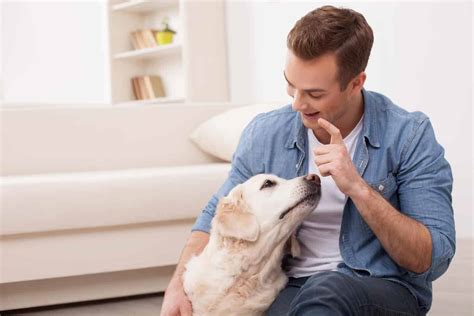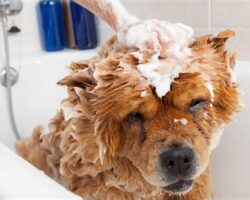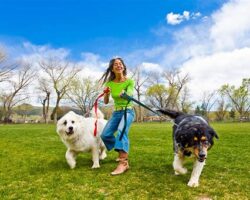Discover the key to a healthy and happy dog with proper nutrition, regular exercise, grooming, healthcare, vaccinations, training, and socialization. Keep your furry friend in top shape!
Proper Nutrition for Dogs
Proper nutrition is essential for keeping your furry friend healthy and happy. Just like humans, dogs need a balanced diet to thrive. A diet rich in protein, carbohydrates, healthy fats and essential vitamins and minerals is vital for their overall well-being. Make sure to choose high-quality commercial dog food that meets the nutritional needs of your specific breed and size.
It’s also important to avoid feeding your dog table scraps or human food that may be harmful to them. Foods like chocolate, grapes, onions, and garlic can be toxic to dogs. Consult with your veterinarian to determine the best diet plan for your dog based on their age, weight, and activity level. In addition to their regular meals, consider adding healthy snacks like carrots, apples, or blueberries to their diet for added nutrients and vitamins.
Don’t forget to provide plenty of fresh, clean water for your dog at all times. Adequate hydration is crucial for their overall health and well-being. Always monitor your dog’s weight and adjust their diet as needed to ensure they maintain a healthy weight. A well-balanced diet is the foundation for a long and healthy life for your beloved pup.
Regular Exercise and Playtime
Proper exercise and playtime are essential for the physical and mental well-being of your furry friend. Just like humans, dogs need regular exercise to maintain a healthy weight, build strong muscles, and keep their cardiovascular system in top shape. Taking your dog for daily walks, or engaging in more vigorous activities such as running or hiking, can help to prevent obesity and other health issues.
Playtime is also important for dogs, as it provides mental stimulation and helps prevent boredom. Interactive toys, games of fetch, and puzzle toys can keep your dog entertained and mentally engaged. These activities can also strengthen the bond between you and your dog, as they provide an opportunity for quality time together.
In addition to physical exercise, playtime also plays a role in your dog’s socialization. It gives your dog the opportunity to interact with other dogs and people, which is important for their overall well-being. Socialization can help prevent behavioral issues such as aggression or fearfulness, and can make your dog more confident in different situations.
Grooming and Hygiene
Grooming and hygiene are essential aspects of caring for your furry friend. Regular grooming not only keeps your dog looking clean and presentable, but it also helps to maintain their overall health and well-being. Brushing your dog’s coat helps to remove loose fur, dirt, and debris, preventing mats and tangles from forming. It also stimulates the production of natural oils, which keep the skin moisturized and healthy. Additionally, regular grooming allows you to inspect your dog’s skin for any signs of irritation, lumps, or ticks, preventing potential health issues.
When it comes to hygiene, keeping your dog’s ears, teeth, and nails clean is crucial. Regularly cleaning your dog’s ears can help prevent infections and remove built-up wax and debris. Maintaining your dog’s dental hygiene is also important for their overall health. Brushing their teeth regularly and providing them with dental chews can help prevent dental diseases and ensure fresh breath. Keeping your dog’s nails trimmed is essential to prevent overgrowth, which can lead to discomfort and difficulty walking.
In addition to regular grooming, it’s important to bathe your dog as needed. Bathing helps to remove dirt and odors from your dog’s coat, keeping them clean and fresh. However, it’s important not to over-bathe your dog, as it can strip their coat of natural oils and lead to skin irritation. Using a gentle, dog-specific shampoo and thoroughly drying your dog after a bath is crucial to maintain their skin and coat health.
Healthcare and Vaccinations
Healthcare for your dog is an essential part of being a responsible pet owner. Just like humans, dogs require regular check-ups to ensure they are in good health. This includes annual visits to the vet for vaccinations, as well as regular examinations to catch any potential health issues early.
Ensuring that your dog is up to date on their vaccinations is crucial for their well-being. Vaccinations help protect against common and potentially deadly diseases such as rabies, distemper, and parvovirus. It’s important to follow your vet’s recommended vaccination schedule to keep your dog protected.
In addition to vaccinations, proper healthcare for your dog also includes regular dental care, parasite prevention, and spaying or neutering. Keeping up with these aspects of your dog’s healthcare will help ensure they live a long and healthy life.
Training and Socialization
Proper training and socialization are essential for a dog’s well-being and behavior. It’s important to start training your dog from a young age to establish good habits and manners. Training can include basic commands such as sit, stay, and come, as well as more advanced skills like leash walking and crate training. Consistency and positive reinforcement are key in training, as it helps your dog understand what behaviors are expected of them.
Socialization is also crucial for a dog’s overall happiness and behavior. Exposing your dog to different people, animals, and environments helps them become well-adjusted and confident. This can reduce the likelihood of fear or aggression towards unfamiliar situations. Dog parks, puppy classes, and regular walks in different environments are great ways to socialize your dog and help them feel comfortable in various settings.
Both training and socialization require patience, time, and effort, but the long-term benefits are invaluable. Properly trained and socialized dogs are more likely to have positive interactions with people and other animals, and are less likely to develop behavioral problems. Additionally, a well-behaved and socialized dog can participate in more activities and adventures with their owner, enhancing both their own quality of life and the bond with their owner.
Frequently Asked Questions
What are the essential vaccinations for dogs?
Essential vaccinations for dogs include rabies, distemper, parvovirus, and adenovirus.
How often should I groom my dog?
The frequency of grooming depends on the dog’s breed, but generally, dogs should be groomed at least once every 4-6 weeks.
What type of food is best for my dog?
High-quality dry dog food with a good balance of protein, carbohydrates, and fats is generally the best choice for dogs.
How much exercise does my dog need?
The amount of exercise needed varies by breed, but most dogs should have at least 30 minutes to 2 hours of exercise per day.
What are common health issues in dogs?
Common health issues include obesity, dental problems, ear infections, and arthritis.
How can I train my dog effectively?
Positive reinforcement, consistency, and patience are key to effective dog training.
What are signs of a healthy dog?
A healthy dog has clear eyes, a shiny coat, normal breathing, regular appetite, and regular bowel movements.





